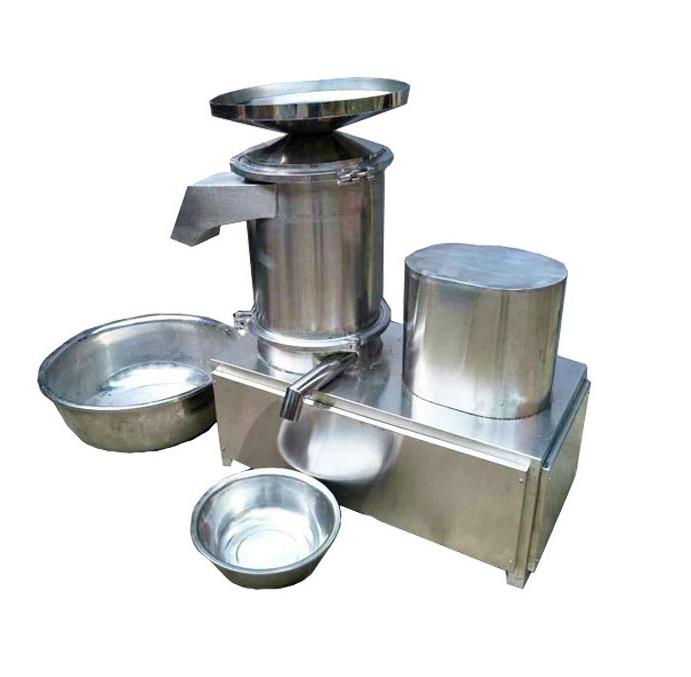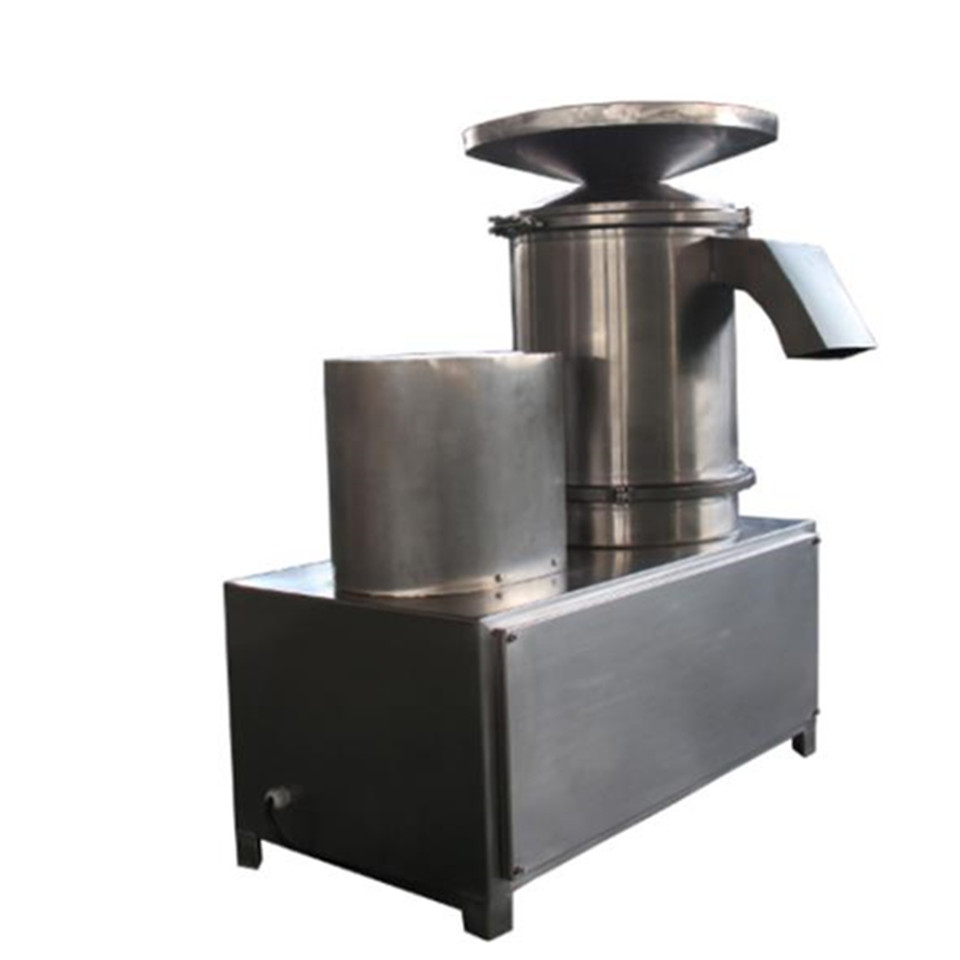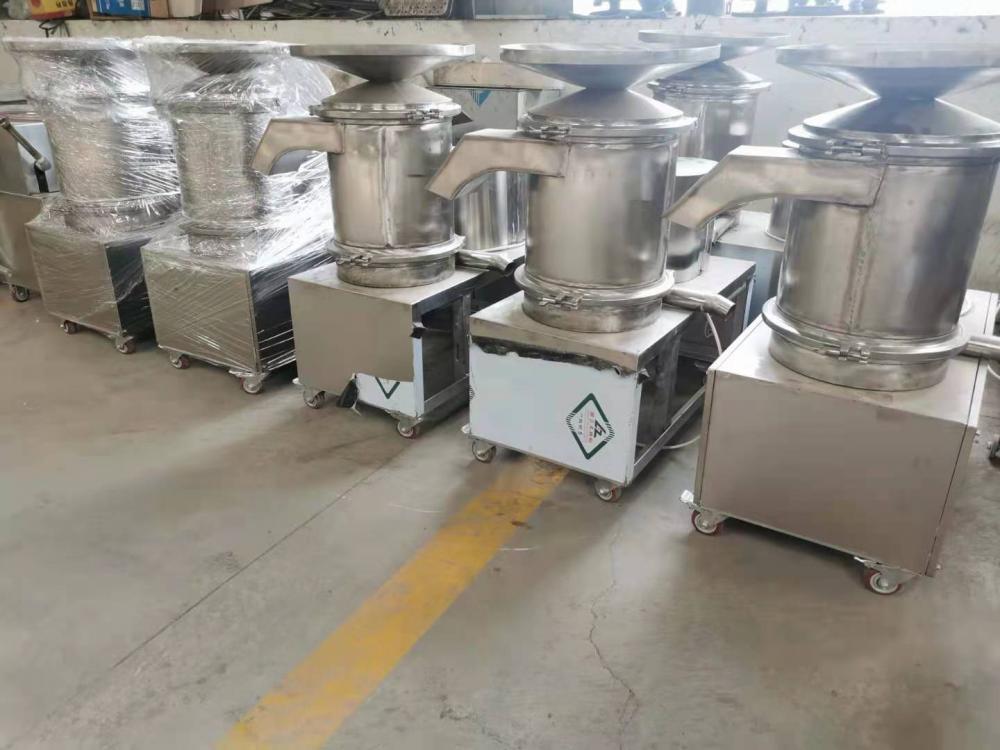Automatic Egg Breaking Cracking Machine
Egg shell separator is used for the processing of eggs and other eggs. In the process of processing, the cleaned eggs are put into the feed port, the egg liquid flows out of the liquid outlet below the egg shell separator, and the eggshell is ejected from the discharge port. The ejected eggshell is crushed small particles, which is easy to collect and transport.
The principle of the eggshell separator is similar to the drying barrel of a washing machine, which is operated at high speed to achieve the purpose of separating eggshells. In the process of use and the ratio of labor is 1:20, enterprises in the process of production and use greatly reduce production costs, save time and resources
In addition we also have other machines for u chosoe,such as spices Powder Pulverizer ,powder mixer,Capsule Filling Machine,capsule Polishing Machine,Capsule Counting Machine,tablet press,vacuum dryer etc
Food Industry Egg Breaking Cracking Machine,Restaurant Egg Breaking Cracking Machine,Best Selling Egg Breaking Cracking Machine,Latest Product Egg Breaking Cracking Machine,High Productively Egg Breaking Cracking Machine Jiangyin yongchang medicine machinery co,.ltd , http://www.ycgrinderline.com
Volvo has a plant in Ghent, Belgium, which operates in parallel with the plant in Sweden's Fuslanda. It is one of Volvo's two major plants and is currently the largest car manufacturer in Belgium. The plant was put into operation in 1965 and currently produces products such as the Volvo C30, S40, V50, S60 and XC60. After the Geely Group invested in Volvo, the Ghent factory in Belgium got a very good development. This year, in the face of the economic downturn in Europe, the factory not only did not cut down one employee, but also solved many employment problems for the local people. Compared with the same period last year, it increased by more than 25% to 270,000 units, setting a record for the 45-year history of the Ghent factory.
Volvo’s profit for the first three quarters was 477 million Swedish kronor. It is reported that in the third quarter of 2011, Volvo’s retail sales in the global market reached 103,119 units, a year-on-year increase of 27.7%. The third-quarter operating income was 26.9 billion Swedish kronor, an increase of 1.5 billion Swedish kronor. In the first nine months of this year, Volvo sold a total of 333,865 vehicles, a year-on-year increase of 22.5% and a pre-tax profit of SEK 477 million.
In September, Volvo Cars once again set a new record for historical sales. It sold 42,000 vehicles worldwide and ranks among the fastest growing luxury car brands. In China, retail sales volume reached 4,765 units in September, an increase of 111% year-on-year, 19.9% ​​in North America, 23.6% in North Europe, 20% in Europe, 50.3% in other markets, and the global market share continued to expand.
In J. D. In a recent customer satisfaction survey for the German market, Power Volvo beat all German luxury brands and Japanese manufacturers to become the number one automotive company in 2011. The survey focused on four aspects of the automotive brand's evaluation: automotive attractiveness (32%), quality and reliability (26%), maintenance costs (22%), and after-sales service (20%). In a test with a score of 1,000 points, Volvo scored a total of 841 points and topped the list. Second place was a Mercedes with a score of 839.



Recently, Crown Prince Philippe of Belgium met with Li Shufu, President of Volvo Cars Worldwide in Beijing, and Li Shufu was awarded the "Leopold Knight Medal" representing the highest honor of the Belgian royal family on behalf of Belgium's King Albert II in recognition of the successful operation of Li Shufu. The Volvo process made outstanding contributions to the economic and social development of Belgium.